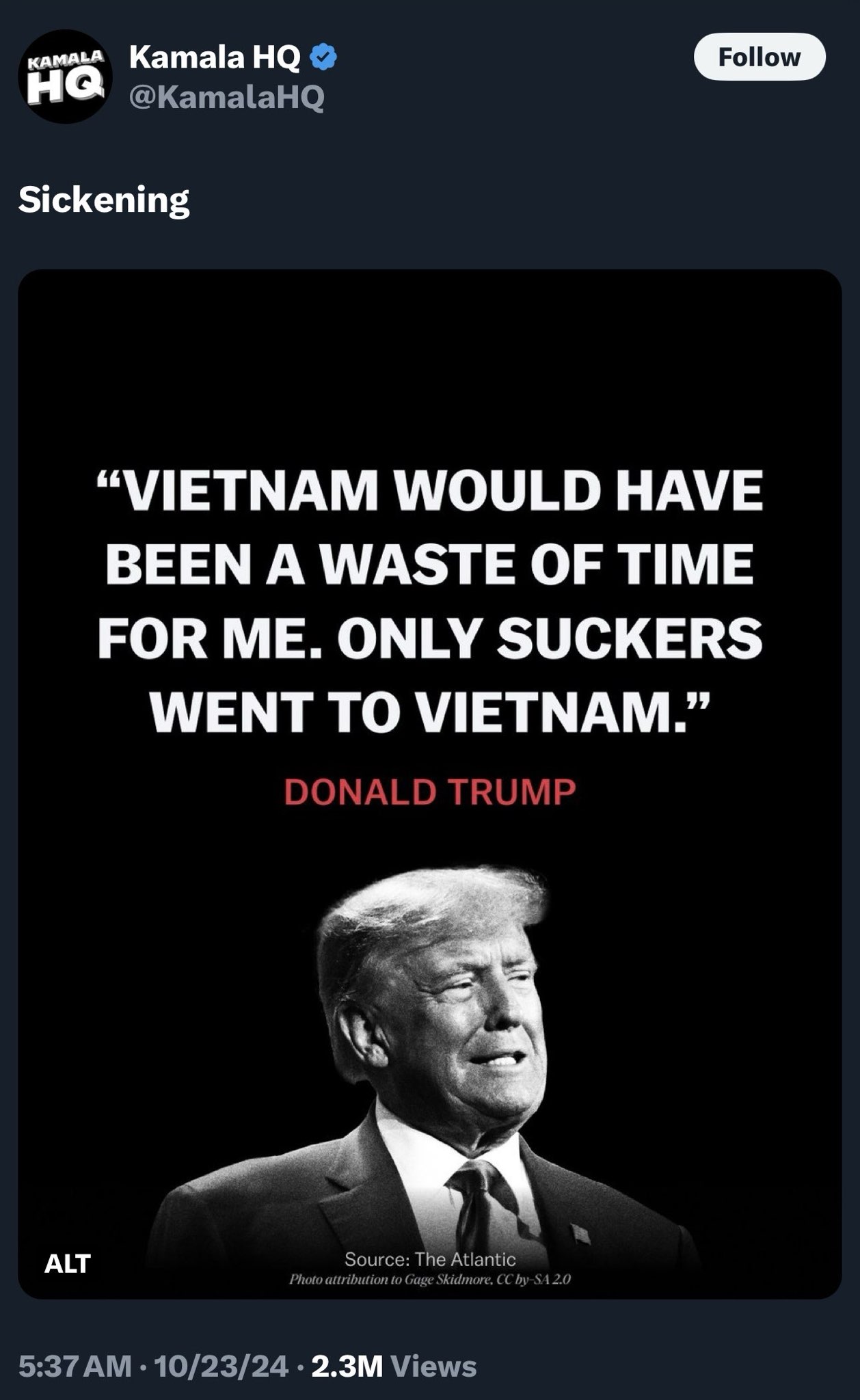As the title states I am confused on this matter. The way I see it, the USA has a two party system and in the next few weeks they’re either going to have Trump or Harris as president, come inauguration day. With this in mind doesn’t it make sense to vote for the person least likely to escalate the situation even more.
Giving your vote to an independent or worse not voting at all, just gives more of a chance for Trump to win the election and then who knows what crazy stuff he will allow, or encourage, Israel to get away with.
I really don’t get the logic. As sure nobody wants to vote for a party allowing these heinous crimes to be committed, but given you’re getting one of them shouldn’t you be voting for the one that will be the least horrible of the two.
Please don’t come at me with pro-Israeli rhetoric as this isn’t the post for that, I’m asking about why people would make such choices and I’m not up for debate on the Middle East, on this post, you can DM me for that.
Edit: Bedtime here now so will respond to incoming comments in the morning, love starting the day with an inbox full 😊.
Edit 2: This blew up, it’s a little overwhelming right now but I do intent on replying to everybody that took the time to comment. Just need to get in the right headspace.
I think it’s because of stuff like this:

I’m not a U.S.A-ian. From my view(might be too critical), I don’t think the foreign policy would be greatly affected by the President or party, unless there’s some massive movement and notion of losing resources like during the invasion of Vietnam.
I think you’re generally right that foreign policy won’t be very affected (not sure what the image has to do with it), but domestic policy certainly will be. It’s very disheartening to see all of these self-proclaimed leftists basically discarding LGBTQ people, whose rights are extremely up for debate in this election, to make a performative stance against a policy that both sides support equally.

